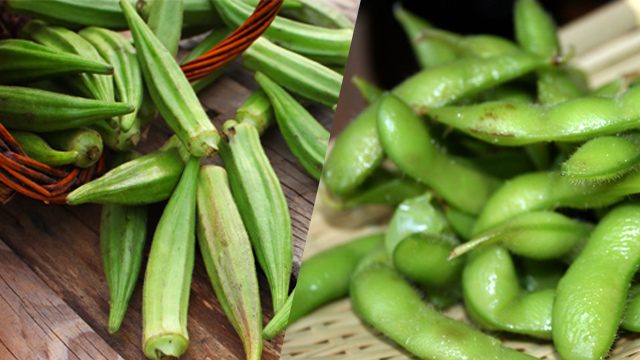SUMMARY
This is AI generated summarization, which may have errors. For context, always refer to the full article.

MANILA, Philippines – The Philippines’ largest business group sees a fruitful business opportunity from breeding okra and soybean vegetable (edamame): A projected $100-million Japanese market in 5 years.
The Philippine Chamber of Commerce and Industries (PCCI) said it has partnered with the Institute of Plant Breeding (IPB) on a technical assistance program that may include breeding of okra that has a projected $100 million Japanese market.
The planned breeding of high value crops – okra and edamame – for the Japanese market is the top priority of the PCCI-IPB partnership, PCCI Agriculture Committee Chief Roberto Amores said in a statement. (READ: How can the Philippines have a booming agricultural sector?)
“Genetic improvement in our fresh vegetables for Japan will be the key to increasing productivity of farmers,” Amores added.
Discussion on the prospects of breeding high value crops between the two groups started last June 2.
Funding for research
PCCI said its group and Filipino agribusiness exporting firm Hi Las Marketing Corporation – which Amores heads – plan to look for funding for the research.
Citing as an example, PCCI said IPB’s research on the disease-resistant biotechnology (BT) eggplant was financed through a United States Agency for International Development grant and a counterpart fund from University of the Philippines Los Baños and Department of Agriculture.
The PCCI-IPB program will also involve faster access of small farmers to financing; marketing of farmers’ produce direct to markets including hotels and restaurants; and development of contract growing business models.
“PCCI knows how important agriculture is. We want to have a national consultation for agriculture. We’re pushing for government’s financing of agriculture especially for the small ones,” PCCI President George Barcelon said. (READ: NEDA pushes 3 agricultural policy reforms)
“For infrastructure, there should be irrigation, power facilities, and roads. There should be information on prices of agricultural supplies like fertilizers,” he added.
Small farmers on value chain
IPB Co-Founder Emil Javier said IPB’s collaboration with PCCI must zero in on enabling farmers to be part of the value chain.
“Filipino farmers do not just become suppliers of cheap raw materials to big manufacturers or retailers. They become partners of agri-businesses,” Javier said.
IPB said it plans to partner with the private sector through commercialization of its technologies.
“Jollibee is interested in getting 11 technologies that we developed,” IPB said.
For its part, PCCI said it will have a scholarship program for small farmers’ families.
“It will introduce a mentoring program for farmers to become entrepreneurs rather than just stay as recipients of dole-outs,” according to Barcelon.
According to the business group, breeding will raise productivity of small farmers planting okra, who are currently using imported hybrid seeds from Japan.
The new okra will be disease-resistant and should have longer shelf life to be competitive, PCCI said.
“With the breeding program of IPB, cost of seeds will be reduced for okra and soybeans,” Amores said. “We will create more jobs using these varieties.”
For edamame, PCCI said the breed is to be developed with “deeper green color and bigger pods” compared to what can be grown in the Philippines.
Okra in Japan at present has a $15 million market. But PCCI said it will grow to $100 million in 5 years.
Edamame market growing
Edamame soybean’s market is expanding, too.
Market in the US alone is placed at up to $200 million by American Vegetable Soybean & Edamame Incorporated.
“Edamame’s popularity appears to be growing. Edamame is found mostly in health food stores, or stores that specialize in Asian products…Some believe that the demand for Edamame will increase due to the health benefits from eating the product,” PCCI said, citing a Michigan State University study.
“Breeding will be the key to Philippines’ becoming competitive with other exporters of okra and soybean to Japan – Korea, Taiwan, Thailand, and China,” PCCI said. – Rappler.com
Add a comment
How does this make you feel?
There are no comments yet. Add your comment to start the conversation.